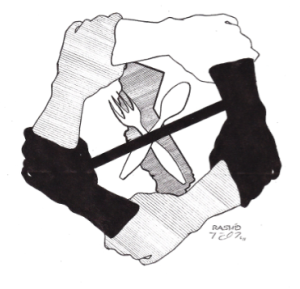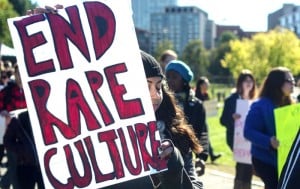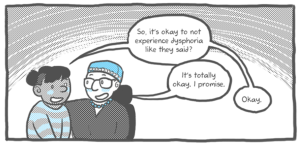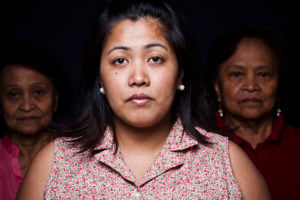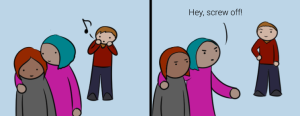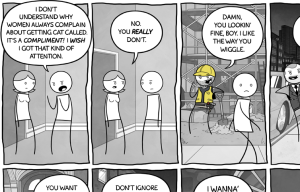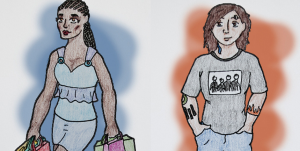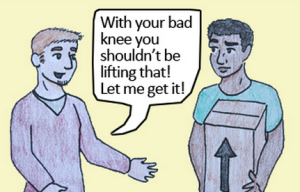
Source: Getty Images
Most U.S. citizens take their civil and human rights for granted.
In fact, many of us are not fully knowledgeable of our rights as citizens of a democratic nation.
Don’t believe us? Take this online quiz to test your knowledge of First Amendment Law.
For most of us, there is no need to know what is taken for granted or to be self-evident.
And, when so few know the full extent of their own rights, even fewer are aware of or do not care about the rights guaranteed to the incarcerated.
Yet, the United States incarcerates a greater proportion of its population than any country in the world by far, and the vast majority of prisoners are incarcerated for non-violent offenses.
For many of us, the rights of the incarcerated are the rights of our friends, family members, and community activists. How many of us stop regularly to consider the ways in which the imprisoned are granted certain fundamental rights that are deemed to be necessary in a civil society?
Prisoners’ rights are loosely described as the nature and extent of the privileges afforded to individuals kept in custody or confinement because they have been convicted of performing an unlawful act.
Over the course of U.S. history, incarcerated rights at times have been established at the state level, while more recently, prisoners’ rights have also been established and protected by the federal government.
The basic rights of the incarcerated include (abbreviated):
- The right of access to the courts
- Freedom to the expression of religion
- The constitutional prohibition against cruel and unusual punishment
- The right to due process
Due to history’s betrayal of basic human rights afforded to the imprisoned, prisoners and the detained are now guaranteed civil liberties that at the least serve to respect their dignity as human beings.
However, despite the supposed “guarantee” of these rights, prisoners all over the U.S. are forced to serve out sentences in inhumane and torturous conditions.
And the prisoners in California have had enough.
The California Prisoner Hunger Strike
Since July 8th, close to 30,000 prisoners in the California state prison system have been refusing food as part of a massive, targeted hunger strike. Some even say that they are willing to die if their demands are not met.
So what are these (un)reasonable demands that prison officials are willing to risk lives to deny to incarcerated people? What exactly are California prisoners wishing to bring attention to and calling for in their strike?
Prisoners are calling for 5 simple and completely reasonable changes.
1. End Group Punishment and Administrative Abuse
A common tactic used in California prisons to control behavior is punishing large groups of inmates for the actions of one or a few.
Strikers are asking for an end to this unfair practice that is used for everything from justifying solitary confinement to denying leisure and recreational privileges.
2. Modify Gang Status Criteria and End ‘Debriefing’ Policies
One of the many justifications used to hold prisoners in long-term solitary confinement is “active gang affiliation.”
Prisoners are determined to be “active” gang members using faulty, outdated, and sometimes illegal criteria.
Additionally, “debriefing” processes (whereby prisoners offer information about other prisoners’ gang activity) are used to as a demand for an end to solitary confinement.
This practice is abusive and actively puts inmates and their families in danger.
3. End Long-Term Solitary Confinement
Imagine spending every day for nine years alone, barely seeing another human being.
That’s what Tony, a 35-year-old prisoner in Pelican Bay State Prison and a hunger striker, has experienced, and he is one of thousands of prisoners who spend an average 6.8 years in solitary confinement in California.
Prisoners are asking the state prison system to abide by the US Commission on Safety and Abuse in America’s Prisons 2006 recommendation to end long-term solitary confinement based on its adverse health effects and cruel nature.
4. Provide Adequate, Nutritious Food
It is common practice in prison to deny inmates adequate food (sometimes as punishment).
Strikers are demanding adequate, nutritious food, including special diet meals and access to nutritional dietary supplements.
5. Expand and Provide Constructive Programming and Privileges for Indefinite Solitary-Confinement Inmates
Those inmates who are indefinitely kept in solitary confinement are denied access to photographs of family or friends, adequate exercise materials, and educational courses that require proctored exams (among a host of other programs and privileges).
Striking inmates are demanding that long-term solitary prisoners be allowed access programming and privileges that can enrich their lives while inside.
See the full demands of the prisoners at the Prisoner Hunger Strike Solidary website.
Obviously, these demands are reasonable and make perfect sense. So why has it gone as far as prisoners hunger striking for their basic rights?
Simply put, the prison industrial complex is a racist, classist system of control that pads the pockets of a few, while robbing millions of their constitutional rights and liberties.
It is not in the best interest of those who operate both private and public prisons to give in to the will of well-organized prisoners, no matter how reasonable their demands.
Which is exactly why these prisoners’ powerful actions must exist in isolation.
3 Ways You Can Act in Solidarity with the Prisoner Hunger Strike
When the only pressure to change the system is coming from within a highly regimented system of oppression and control, those in power can much more easily marginalize or keep a movement quiet.
This is precisely why the striking inmates in California are calling on people far and wide to aid them in their efforts.
So here are three things you can do to support this powerful movement for justice:
1. Contact Governor Jerry Brown
Few individuals hold as much sway over prison policy in any given state as the governor. Thus, we need you to call Governor Jerry Brown and express your support for the striking inmates.
Here’s a sample script provided by CURB:
I’m calling in support of the prisoners on hunger strike. The governor has the power to stop the torture of solitary confinement. I urge the governor to compel the CDCR to enter into negotiations to end the strike. Right now is their chance to enter into clear, honest negotiations with the strikers to end the torture.
Phone: (916) 445-2841
(510) 289-0336
(510) 628-0202
Fax: (916) 558-3160
If you live in California, you can also have a powerful impact by contacting your legislators. And if you know residents of California, encourage them to write to their local representatives, encouraging them to take up the cause in the state legislature.
2. Engage Your Community
The more voices that are calling for an end to these abusive policies, the more amplified the sacrifice of striking inmates becomes.
One simple way to amplify their voices is to get your community engaged. Make sure that the people you spend your time with know about the strike.
There are lots of ways to do this.
Send them an e-mail asking them to sign this petition. We all know that petitions are a common form of slacktivism, but petitions with large numbers of signatures from diverse constituencies are far more likely to be taken seriously and to be entered into the public record. Plus, it’s a great entry point into engaging your community in wider activism.
You can also fast in solidarity. When your community sees you refusing food and asks why, you have an automatic entry into a conversation about the importance of this prisoner-led movement.
The more people you can get committed to acting in solidarity, the more the inmates’ sacrifice is amplified.
3. Organize or Attend an Action or Teach-In
Countless groups around the United States are organizing actions or teach-ins to raise awareness about the strike and inspire action.
Get creative! So long as you’re following the 3 Core Guidelines for Solidarity Action, you can do just about anything so long as it educates others and mobilizes action!
Here are a few ideas:
- Organize a potluck for friends, and ask them all to chip in some money to support the campaign. Have some intentional conversation during the meal about what’s happening, and ask people to contribute what they can. Then donate it here! Don’t forget to add your event to this event timeline.
- Reach out to local prison reform groups, and ask them if you can support any of their solidarity work!
- Check out the calendar of actions, and add your voice by offering to help organize or support the work! Then make sure your community comes out in force.
The campaign to support the hunger strikers is obviously fluid and responsive to the needs of the strikers, so please visit the Prisoner Hunger Strike Solidarity website for updates and calls to action.
Mass Imprisonment Affects Everyone
Whether you’ve been locked up or not, have friends or family in prison or not, are on papers or off, mass incarceration is one of the most important civil rights issues of our time.
When you account for the six million people under correctional supervision in the United States and their friends and families, approximately half of all Americans are directly affected by mass incarceration, and people of Color are disproportionately affected.
Even if you think are not personally connected to the problem, you are. More than $1 trillion of our cumulative tax dollars have been funneled into this oppressive system, while our school systems fail and social services continue to be cut.
By supporting the actions of incarcerated men and women who are fighting for justice, we ally ourselves with some of the most marginalized in society; those who the state seeks to deny a voice through government-sponsored violence.
By supporting the actions of incarcerated men and women fighting for justice, we ally ourselves with the families of the millions who are locked up in the U.S. for non-violent, frivolous offenses.
By supporting the actions of incarcerated men and women fighting for justice, we stand up against the new Jim Crow.
Want to discuss this further? Login to our online forum and start a post! If you’re not already registered as a forum user, please register first here.
Dr. Venus E. Evans-Winters is a Contributing Writer for Everyday Feminism and an Associate Professor of Education and Faculty Affiliate of Women and Gender Studies. Her interests are school resilience, urban education reform and policy, critical race theory, and feminism(s). She is the author of Teaching Black Girls: Resiliency in Urban Classrooms as well as several scholarly articles and book chapters. Follow her on Twitter @ileducprofand.
Jamie Utt is a Contributing Writer at Everyday Feminism. Jamie is a diversity and inclusion consultant and sexual violence prevention educator based in Minneapolis, MN. He lives with his loving partner and his funtastic dog. He blogs weekly at Change from Within. Learn more about his work at his website here and follow him on Twitter @utt_jamie. Read his articles here and book him for speaking engagements here.
Search our 3000+ articles!
Read our articles about:
Our online racial justice training
Used by hundreds of universities, non-profits, and businesses.
Click to learn more


